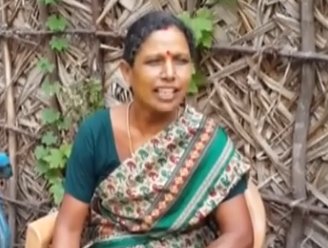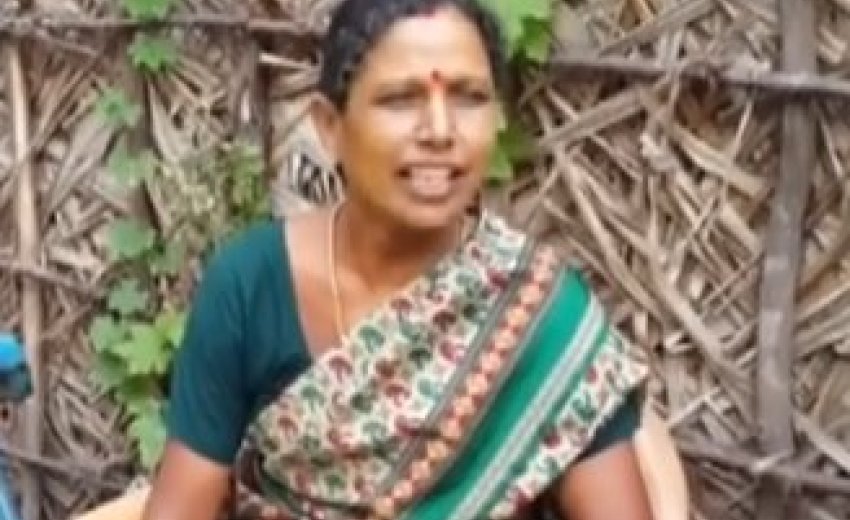 This past January, we met Shantha Ragunathan, (see video below - Ed) an illiterate woman from Kodapattinam, a remote village in Tamil Nadu, India. Her story is at once heartbreaking and inspiring, showing that game changers can come from all walks of life, all over the world.
This past January, we met Shantha Ragunathan, (see video below - Ed) an illiterate woman from Kodapattinam, a remote village in Tamil Nadu, India. Her story is at once heartbreaking and inspiring, showing that game changers can come from all walks of life, all over the world.
At six, Shantha lost her parents. By her twenties, she was stuck in a seemingly dark pit without a glimmer of hope: with two children and little financial support from her husband, she could not afford even one square meal a day. Although she was poor in resources, she possessed the innovation mindset shared by many game changers: they see and act on opportunities, use "and" thinking to resolve tough dilemmas and break through compromises, and employ their resourcefulness to power through obstacles. Innovators maintain a laser focus on outcomes, avoid getting caught in the activity trap, and proactively "expand the pie" to make an impact. Regardless of where they start, innovators persist till they successfully change the game.
Hopeless as her situation was, Shantha engaged in "and" thinking. She imagined a future when her family would be out of poverty AND her kids would start their adult life educated. Unimaginable as it may seem, she had no real-life role models in her village for this dream. Some of her neighbors had given up all hope and fallen into alcoholism; others exploited their kids with child labor to earn money; still others sacrificed their entire lives in an attempt to get their children out of the vicious circle of poverty—with few successes, despite their sacrifices and heroic efforts.
Shantha's "and" thinking powered her dream and kept her alert to opportunities. When Ms. Sasikala, a Block Development Officer (BDO), talked to the Kodapattinam villagers about microfinance, only Shantha, of all the villagers, saw the opportunity and took action.
To participate in a microfinance campaign, the village had to form a Self Help Group (SHG) of about 20 people, with each member contributing a certain amount of money every month. To keep the math simple, let's say $10 (although in this case the currency was Indian rupees): 20 people x $10 each = $200. The bank (in this case Indian Bank) would then loan a matching amount, bringing the available funds to $400. Any member of the SHG, either individually or as a team, could pitch a proposal to use the available funds to a microfinancing committee of bank officials and village elders.
For example, a member could propose to use the money to buy an income-producing asset, such as a cow. Selling the cow's milk would create an income stream, a portion of which would repay the loan; the remainder would lift the cow-owning entrepreneur out of poverty. The microfinancing committee decided which proposal to fund each month, giving out $400 month for approved proposals: $200 from the SHG contributors and $200 in matching loans from the bank.
While most folks who heard the Block Development Officer's presentation thought that microfinance was too much work and gave up, or froze into inaction not knowing what to do, Shantha's resourcefulness kicked into high gear. She went door to door, pleading and pitching. In her own words, "I had to go back over 50 times knocking on the same door because they wouldn't trust me enough to even give ten rupees [about 20 cents]. I talked to them about how we can work together to solve our problems." Undeterred, Shantha persisted until she persuaded the required number of people to sign up for the microfinance project.
Shantha formed the SHG and went to the bank, assuring the loan officers that her SHG would start fruitful businesses, like buying cows and selling milk, with the loaned money. She was awarded the bank's matching micro-credit loan. Then Shantha made her pitch to the microfinancing committee, describing how, with traditional bank loans, they would borrow at very high interest rates and get stuck in a poverty cycle, barely making enough money to repay the interest. The committee, moved by her courage and business acumen, approved her funding.
Shantha was driven, focusing on outcomes. She started with one cow, and with the income from the cow's milk she repaid the loan and also bought more income-producing assets: sheep, goats, small corner stores, sewing machines, and audio systems rented out for village events. Over a 14-year period, Shantha converted that first, tiny microfinance loan to wealth, including her own house and a college-level education for both of her children. (Her daughter is now a teacher and her son an engineer.) She was so successful that she was appointed by the BDO as a mentor and a consultant to rehabilitate unsuccessful SHGs.
Although she had no formal education, Shantha had strong business acumen and innate leadership qualities. When asked how she learned to manage a business, she said, "I watched the shops in my village. I noticed that those that had sales revenues more than their costs, succeeded. Those that had costs more than their sales revenues, failed. I knew I wanted to succeed. So I made sure revenues exceeded costs." She trained six other villagers to lead the SHG in her absence—clearly understanding the importance of building a leadership pipeline, without the benefit of an MBA education.
Shantha expanded the pie. She helped other villagers form SHGs and found ways for SHGs to grow. For example, when she heard that a tissue manufacturer was having productivity problems because of constant power cuts, she convinced the company to invest in an SHG that manually assembled the tissue boxes. This resulted in jobs for many villagers as well as cost savings for the company: the tissue boxes were assembled for far lower cost than the machines, but at the same quality.
Shantha Ragunathan is truly a game changer. Shantha's success spread in a ripple effect from her family and her village to dozens of neighboring villages, ultimately affecting thousands of individuals. From the edge of society, unable to be a consumer, she got "into the game" by acquiring wealth. She brought along with her thousands of people, who also became active participants in the game. Even more important, by serving as a role model, she created the foundation for many more such leaders and game changers to emerge.
We can all make a difference in areas in which we are "poor". Shantha was poor in money, but others of us are poor in business, health, relationships, career, respect, relationships, or time. We can lift ourselves out of this poverty the way Shantha Ragunathan did: by applying the innovation mindset and changing the game.
Innovative Mindsets Shantha
